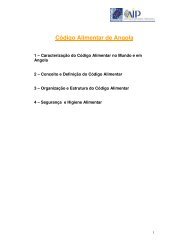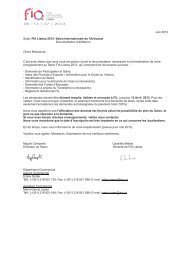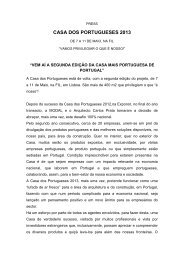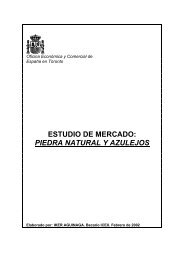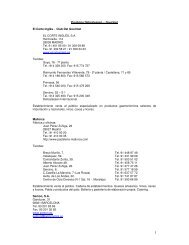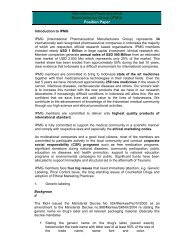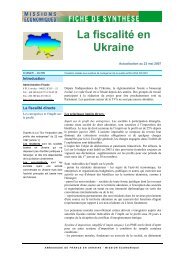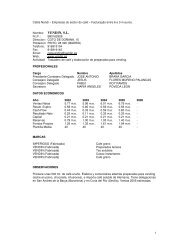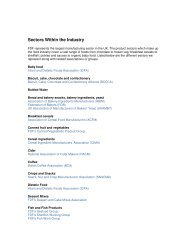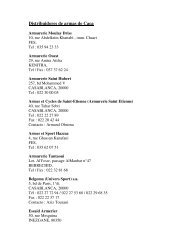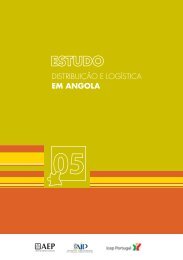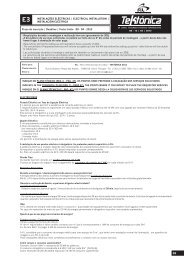Create successful ePaper yourself
Turn your PDF publications into a flip-book with our unique Google optimized e-Paper software.
housing.qxd 15/12/2005 21:26 Page 30<br />
HOUSING<br />
30<br />
Renting a Home<br />
continued from page 29<br />
apartments. One of the best ways to find<br />
an apartment is to place an advertisement<br />
yourself in one of the main newspapers,<br />
setting out what you are after.<br />
Many Germans do this.<br />
Some landlords prefer to find tenants<br />
this way because it means they can avoid<br />
dealing with a deluge of inquiries; they<br />
can choose who they want to speak to in<br />
advance.<br />
Non-Germans can (emphasis is on ‘can’)<br />
be attractive to landlords, as they likely<br />
won’t be around forever and the property<br />
can be put back on the market soon at a<br />
higher rent.<br />
If you’re not planning to choose a<br />
Wohngemeinschaft, be aware that some<br />
landlords or agents will ask for your<br />
Polizeiliche Anmeldung (police registration).<br />
Once you have expressed an interest in a<br />
place, you will normally be asked to fill<br />
in a questionnaire (or Fragebogen) giving<br />
information about yourself<br />
(Selbstauskunft).<br />
The questions cover things like income,<br />
marital status and number of children,<br />
but they can be quite intrusive, asking<br />
things like whether you are pregnant,<br />
have a criminal record or even — believe<br />
it or not — belong to a political party.<br />
WHAT YOU’LL GET<br />
Rents are either Kaltmiete (cold rent),<br />
meaning net rent, or Warmmiete (warm<br />
rent), which includes utilities such as<br />
heating and sometimes cable TV.<br />
There’s more furnished accommodation<br />
around than there used to be, but most<br />
places contain nothing — no light fittings,<br />
curtains, refrigerators or, in<br />
extreme cases, floor coverings or kitchen!<br />
This is because Germans tend to rent and<br />
stay in apartments for a long time.<br />
THE LEASE<br />
It could be a good idea to have a lawyer<br />
or German-speaking friend take you<br />
through the lease before you sign it.<br />
German leases are not universal and can<br />
include all sorts of surprises.<br />
In particular, watch out for the dreaded<br />
Staffelmiete clause, which means that rent<br />
automatically increases each year by a<br />
certain percentage.<br />
This can be quite steep, so what seems<br />
like a bargain could turn expensive after<br />
a few years.<br />
All sorts of other things can be tucked<br />
away in a lease, such as a requirement that<br />
you put a metal trap in the sink to catch<br />
food, or disconnect the water supply to<br />
balcony taps in winter.<br />
If you don’t and the pipe bursts, you could<br />
owe damages.<br />
Leases can also require you to do things<br />
when you leave, like taking down the<br />
funky wallpaper and painting over the<br />
murals to return the place to how it was<br />
when you moved in.<br />
The duties can depend on just how long<br />
it is that you’ve had the flat.<br />
The lease will also set out how much<br />
notice you have to give before moving<br />
out, which also depends on how long<br />
you have lived there.<br />
For detailed information on managing your finances<br />
as an expat, visit www.expatica.com/germany<br />
GERMANY EXPAT SURVIVAL GUIDE WWW.EXPATICA.COM




